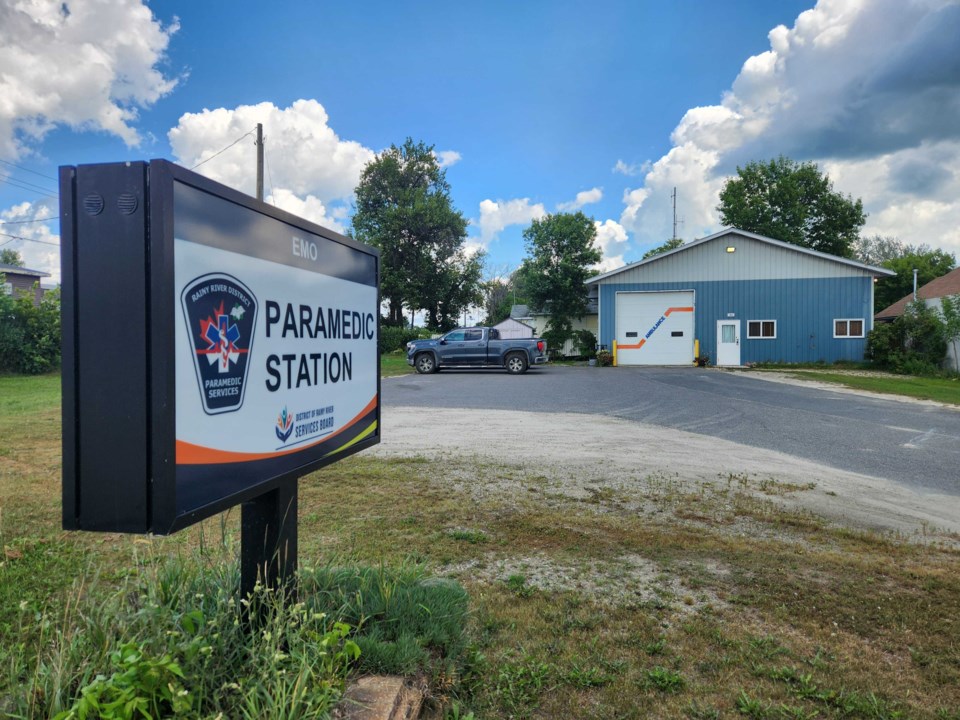RAINY RIVER — Officials in the Rainy River district say social services boards that cover less densely populated areas with limited tax bases are being left behind by current provincial funding.
Representatives with the District of Rainy River Services Board presented a number of concerns to senior provincial government officials at the recent Association of Municipalities of Ontario conference in Ottawa. One of those was to reiterate the pressures small and rural municipalities and their services boards face with dwindling tax bases and the funding of social services — like homelessness prevention, child care and mental health and addictions — having increasingly become the responsibility of local governments.
“It just gets to be like you can't get blood from a stone,” Rainy River services board chair Deborah Ewald said. “If you don't have the population and you still need the services … we just feel that it needs to be looked at.”
“It is the perspective of the (Rainy River services board) and its member municipalities that the model has not evolved to match the growing complexity of the issues (social services boards) are being asked to address or to reflect the increasingly central role (social services boards) play in delivering on provincial priorities,” said a briefing note prepared by the Rainy River board for government officials and shared with Newswatch.
The document went on to say that boards now take on “leadership, coordination and service delivery” in numerous areas, including:
- Supportive and transitional housing
- Homelessness prevention
- Community safety and well-being
- Early years family-focused programming and special needs child care
- Family support and early learning
- Aging-at-home and home support services
- Mental health and addictions navigation
- Access to primary care
- Integration with health care services.
Adding to that, the brief said, is that the Rainy River district — which has a population of about 20,000 spread through 10 municipalities, nine First Nations and a large swath of unorganized territory — has a limited commercial tax base and the member municipalities “are stretched to their fiscal limits.”
Another concern, on top of the basic provision of services and maintaining existing infrastructure, is that many facilities, like social housing buildings, need to be refurbished or replaced.
“A lot of social housing in this district is coming to (its) end-of-life,” Ewald said. “You're trying to maintain and the cost of renovating is so high in this district because there's very few contractors.”
“It's a twofold thing — it's maintaining but it's also (that) you have to have new stuff put up too because things do come to end-of-life.”
Other issues the board’s brief identified included paramedics having to increasingly field non-traditional calls like mental health crises, opioid overdoses and homelessness-related emergencies, the services board working in a system where only 40 per cent of its residents have a primary care provider, a dearth of available grant funding for community safety initiatives and a lack of financial support for “increasingly vulnerable and elderly tenants with complex needs.”
At the AMO conference, the Rainy River board was advocating for the province taking a fresh look at funding levels for smaller district social services boards, including a dedicated fund for boards with less population to help sustain them.
“We would just want to press to them the concerns that we have because, quite honestly, it'll get to the point where it's not sustainable for our small municipalities either,” Ewald said.
No formal commitments were made by the province during the meetings at the AMO conference, the social services board said in a media release, but added that it will follow up on the conversations officials had “as part of its ongoing efforts to secure stronger, more economically sustainable supports for the communities it serves.”
Ewald agreed that no changes were committed to, but, overall, she said the conversations “went well.”
“They thanked us for our presentations and our input, and they'll take it back,” she said.
“At least they're listening to us.”
